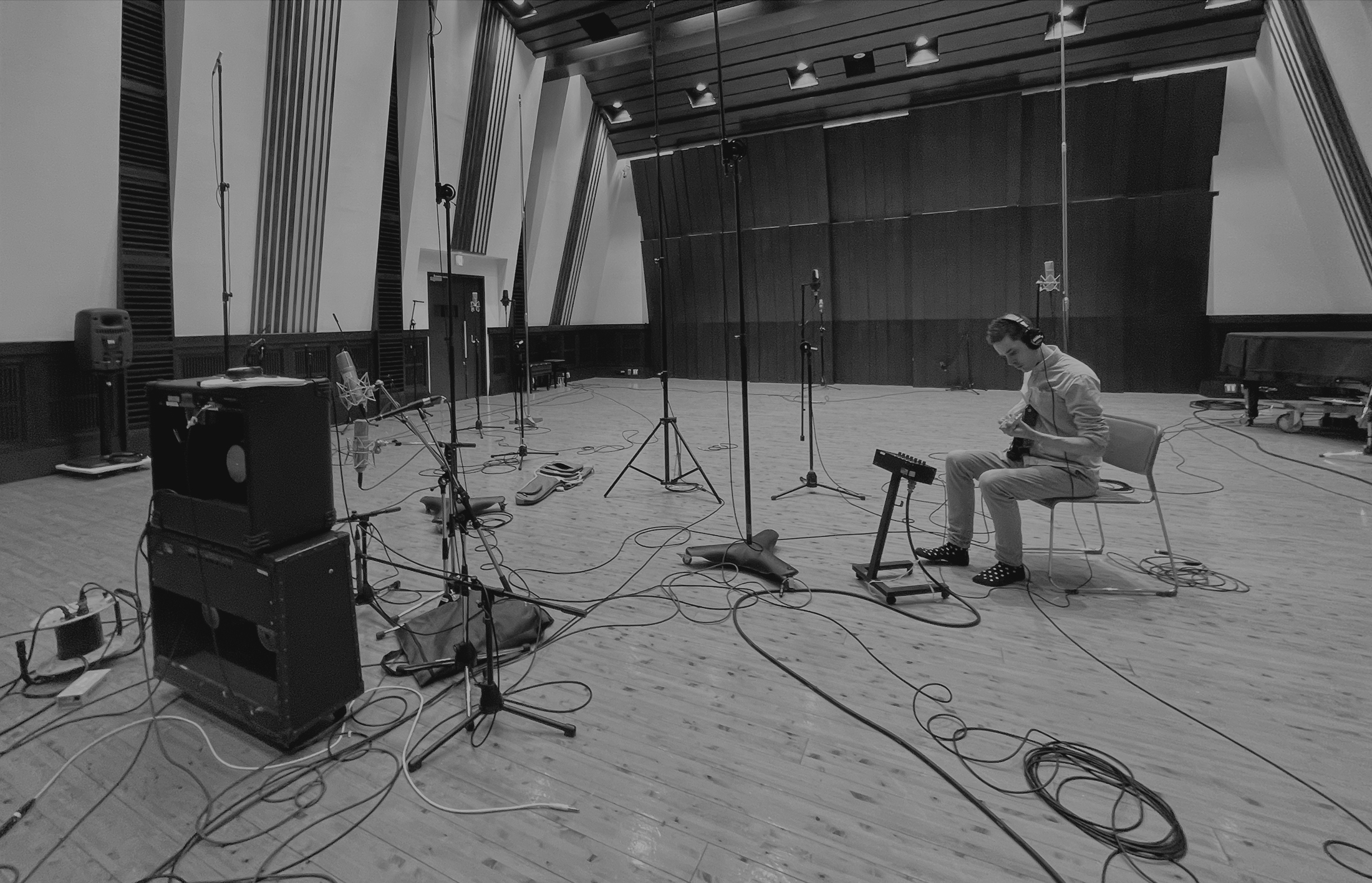Will Howie is a music producer, recording engineer, and innovator in research and production techniques for 3D audio. He is also faculty within the University of British Columbia’s School of Music. His audio production experience covers myriad genres, including classical, jazz, fusion, acoustic, avant-guard, rock and funk, as well as many live and in-studio broadcasts for CBC/Radio-Canada. Will holds a PhD in Sound Recording from McGill University, and was a postdoctoral research fellow at Tokyo University of the Arts. He has had the pleasure to have worked with such artists as Vancouver Symphony Orchestra, James Ehnes, Steven Page, Toshiyuki Honda, Tafelmusik, Angela Hewitt, Chucho Valdés, Measha Brueggergosman, Angélique Kidjo, Tanya Tagaq, and Jane Coop.
Selected Recording Projects
Credit: Recording Engineer
Credit: Producer, Recording, Mixing, Mastering
Credit: Producer, Recording, Mixing
Credit: Producer, Recording, Mixing
Credit: Producer, Recording, Mixing, Mastering
Credit: Recording, Mastering
Credit: Recording and Live Broadcast Mix
Credit: Producer, Recording, Mixing, Mastering
Credit: Recording, Live Electronics
Credit: Recording and Mixing
Research
Will’s current research interests are focused on determining the physical and perceptual effects of floor-level loudspeakers/sound sources within three-dimensional sound reproduction. From 2021-2023, he was a Japan Society for the Promotion of Science postdoctoral research fellow within Tokyo University of the Arts’ department of Musical Creativity and the Environment . He frequently collaborates with members of McGill University’s Immersive Media Lab , The Centre for Interdisciplinary Research in Music Media and Technology , and the Korea Advanced Institute of Technology on areas of research such as recording and mixing techniques for immersive audio, perception of 3D sound environments, and training and selection of listening test subjects.
Lead-Authored Publications
- Perceptual Comparison of 3D Audio Reproduction With and Without Bottom Channels (2024)
- Case Studies in Music Production for 3D Audio Reproduction with Bottom Channels (2023)
- Objective comparisons of 3D audio reproduction with and without bottom channels (2023)
- Comparing immersive sound capture techniques optimized for acoustic music recording through binaural reproduction (2021)
- Effect of Skill Level on Listener Performance in 3D Audio Evaluation (2020)
- Effect of Audio Production Experience, Musical Training, and Age on Listener Performance in 3D Audio Evaluation (2019)
- Pop and Rock music audio production for 22.2 Multichannel Sound: A Case Study (2019)
- Subjective and objective evaluation of 9ch three-dimensional acoustic music recording techniques (2018)
- Capturing Orchestral Music for Three-Dimensional Audio Playback (Doctoral Thesis) (2018)
- Listener Discrimination between Common Channel-Based 3D Audio Reproduction Formats (2017)
- Subjective Evaluation of Orchestral Music Recording Techniques for Three-Dimensional Audio (2017)
- A Three-Dimensional Orchestral Music Recording Technique, Optimized for 22.2 Multichannel Sound (2016)
- Listener preference for height channel microphone polar patterns in three-dimensional recording (2015)
Exploratory microphone techniques for three dimensional classical music recording (2015)
Co-Authored Publications
- N. Brochet, T. Tanaka and W. Howie – Microphone-based Data Augmentation for Automatic Recognition of Instrumental Playing Techniques (2024)
- S. Kim, D. Ko and W. Howie – Validation of a Neural Network Clustering Model for Affective Response to Immersive Music (2023
- T. Kamekawa, A. Marui and W. Howie – The effect of head tilt on the perception of the top layer of three-dimensional audio (2023)
- S. Kim and W. Howie – Neural-network clustering for evaluating immersive sound fields (2023)
- E. Ekici, W. Howie and T. Kamekawa – Field Report on 3D Audio Capture of Solo Piano for Classical Music Productions (2023)
- S. Kim and W. Howie – Influence of the Listening Environment on Recognition of Immersive Reproduction of Orchestral Music Sound Scenes (2021)
- S. Kim et al. – Comparison of Salient Percepts Associated With Three Sound-Field Capturing Method (2018)
- R. King et al. – Real or Illusion? A comparative study of captured ambience vs. artificial reverberation in immersive audio applications (2017)
- M. Boerum et al. – Lateral Listener Movement on the Horizontal Plane: Sensing Motion Through Binaural Simulation (2016)
- R. King et al. – Real Rooms vs Artificial Reverberation: An evaluation of actual source audio vs. artificial ambience (2016)
- R. King et al. – A Survey of Suggested Techniques for Height Channel Capture in Multi-channel Recording (2016)
- B. Martin et al. – Immersive content in three-dimensional recording techniques for single instruments in popular music (2015)


